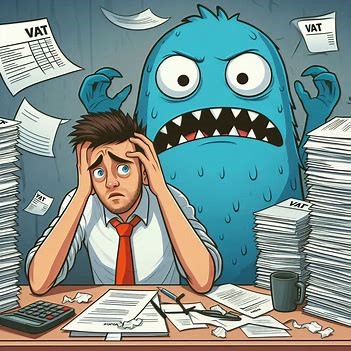Value-Added Tax (VAT) is a consumption tax levied on goods and services at each stage of production or distribution. For US companies engaged in international trade, understanding VAT implications is crucial to avoid unnecessary tax liabilities. This article provides strategies for US companies to minimize or avoid VAT liabilities, ensuring compliance while optimizing financial outcomes.
Table of Contents
ToggleWhat is VAT?
VAT differs from sales tax in that it is applied incrementally at each stage of production and distribution, rather than only at the point of sale. VAT is prevalent in many countries, especially within the European Union (EU), where compliance is strictly enforced.
Key Points:
- VAT vs. Sales Tax: VAT is collected at multiple points during production and distribution, whereas sales tax is collected only at the final sale.
- Global Application: VAT is a common tax in the EU, but also in other regions like Asia and Latin America.
- Compliance Importance: For US companies operating internationally, understanding and complying with VAT regulations is essential to avoid fines and penalties.
Scenarios Where VAT May Apply
Exporting Goods and Services
US companies exporting goods often benefit from VAT exemptions. Exported goods are usually zero-rated, meaning the VAT rate applied is 0%, effectively exempting these goods from VAT.
- VAT Exemptions: Exported goods generally do not incur VAT, but documentation proving export is necessary.
- Non-Applicability Conditions: Goods shipped directly to foreign customers are typically exempt from VAT.
Digital Services and E-commerce
Digital services and e-commerce present unique VAT challenges. The “place of supply” rules determine where VAT is applicable, often leading to VAT obligations in the consumer’s country.
- Digital Products: Selling digital products to foreign consumers often requires VAT registration in the consumer’s country.
- Place of Supply Rules: These rules dictate that VAT is applied where the service is consumed.
Registering for VAT
US companies may need to register for VAT in foreign countries if they meet certain thresholds for sales or if they establish a physical presence in those countries.
- Registration Requirements: VAT registration is necessary when sales exceed certain thresholds or when operating a permanent establishment in a foreign country.
- Failure to Register: Not registering for VAT when required can result in severe penalties and interest charges.
- Benefits of Registration: Registering allows companies to reclaim VAT paid on business expenses, reducing overall tax liability.
Strategies to Minimize VAT Liability
Understanding Input Tax Credits
Businesses can claim back VAT paid on inputs used to produce goods and services sold to consumers. This mechanism helps reduce the net VAT payable.
- Claiming VAT: Proper documentation of input VAT is essential for claiming credits.
- Accurate Records: Maintain detailed records of all business expenses to substantiate VAT claims.
Utilizing VAT Exemptions
Identifying goods and services that qualify for VAT exemptions can significantly reduce tax liabilities.
- Exempt Goods and Services: Certain products and services may be exempt from VAT based on local laws.
- Navigating Local Laws: Understand and leverage local exemptions to minimize VAT exposure.
Tax Planning and Structuring
Effective tax planning and business structuring can optimize VAT efficiency.
- Consulting Professionals: Engage with tax advisors to develop strategies tailored to your business.
- VAT Grouping: Grouping entities under a single VAT registration can streamline compliance and reduce administrative costs.
- Local Entities: Establishing a local entity in VAT jurisdictions can provide tax advantages and simplify compliance.
Compliance and Documentation
Maintaining proper documentation is crucial for VAT compliance. Accurate records support VAT claims and ensure compliance with tax authorities.
- Required Records: Keep detailed invoices, contracts, and receipts to substantiate VAT claims.
- Non-Compliance Consequences: Failure to maintain proper documentation can result in fines, penalties, and disallowed VAT claims.
Seeking Professional Advice
Navigating VAT complexities requires expertise. Tax advisors can provide valuable guidance on international VAT laws and compliance strategies.
- Role of Tax Advisors: Professionals help interpret VAT regulations and develop effective compliance strategies.
- Benefits of Professional Guidance: Working with experienced tax advisors can prevent costly mistakes and optimize tax positions.
- Staying Updated: Regular consultation ensures your business stays compliant with evolving VAT regulations.
Case Studies and Examples
Successful VAT Minimization
Examples of US companies successfully minimizing VAT exposure illustrate best practices and common strategies.
- Example 1: A US tech company selling digital services in the EU registered for VAT in multiple countries, reclaiming significant input VAT and reducing net liabilities.
- Example 2: A manufacturing firm exporting goods leveraged zero-rated VAT rules, ensuring compliance while minimizing tax costs.
Common Pitfalls
Understanding common pitfalls helps avoid mistakes that can lead to increased VAT liabilities.
- Pitfall 1: Failing to register for VAT in a timely manner, leading to penalties.
- Pitfall 2: Inadequate record-keeping resulting in disallowed VAT claims.
Conclusion
Navigating VAT as a US company requires a strategic approach to minimize liabilities and ensure compliance. By understanding VAT regulations, registering where necessary, and leveraging professional advice, businesses can effectively manage their VAT obligations and optimize their financial outcomes. For personalized advice, consulting with a tax professional is recommended.


